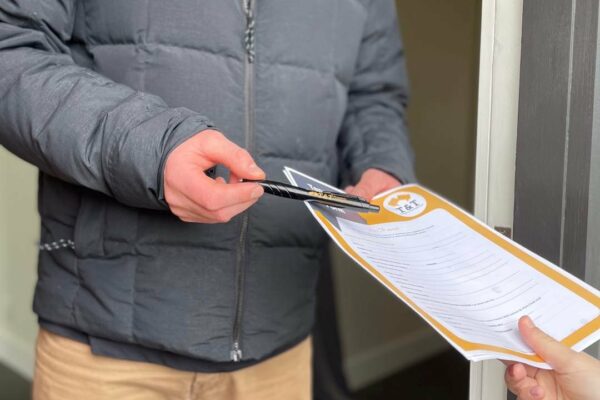How To Foster A Good Tenant-Landlord Relationship 02/10/2023
Fostering a positive tenant-landlord relationship is essential for a harmonious and mutually beneficial rental experience. Here are some tips to help you establish and maintain a good relationship:
For Landlords:
- Effective Communication: Maintain open and clear lines of communication with your tenants. Be responsive to their inquiries, concerns, and maintenance requests. Timely communication can prevent misunderstandings.
- Respect Privacy: Respect your tenant’s privacy by giving proper notice before entering the property, as required by local laws. Only enter for necessary inspections or repairs.
- Prompt Repairs and Maintenance: Address maintenance issues promptly. Regular maintenance not only keeps the property in good condition but also shows that you care about your tenant’s well-being.
- Fairness and Consistency: Apply rules and policies consistently to all tenants. Treat all tenants fairly, regardless of background, and avoid any discriminatory practices.
- Know the Laws: Familiarize yourself with local rental laws and regulations. Comply with all legal requirements regarding lease agreements, rent increases, and security deposits.
For Tenants:
- Pay Rent on Time: Pay your rent on time and in full. This is one of the most critical aspects of the landlord-tenant relationship. It establishes trust and reliability.
- Respect the Property: Treat the rental property with care and respect. Report any damages or maintenance issues promptly to the landlord.
- Follow Lease Terms: Abide by the terms of your lease agreement, including rules regarding pets, smoking, and other restrictions. Seek permission for any significant changes or alterations to the property.
- Communication: Communicate with your landlord or property manager if you have concerns, questions, or requests. Be respectful and clear in your communication.
- Give Notice: If you plan to move out, provide proper notice as per your lease agreement and local laws. This gives the landlord ample time to find a new tenant.
For Both Parties:
- Written Agreements: Ensure that all agreements, changes, or promises are in writing. This helps avoid misunderstandings in the future.
- Regular Inspections: Conduct regular inspections of the property together, if possible, to address any concerns or issues in person.
- Conflict Resolution: If conflicts or disputes arise, try to resolve them through respectful and open communication. If necessary, consider mediation or arbitration.
- Documentation: Keep records of all correspondence, including emails, texts, and maintenance requests. This documentation can be useful if disputes arise.
- Professionalism: Approach the relationship professionally, as you would with any other business arrangement. Keep emotions in check and focus on finding mutually agreeable solutions to problems.
Remember that a good tenant-landlord relationship is based on mutual respect, trust, and clear communication. Building and maintaining this relationship can lead to a positive and stress-free rental experience for both parties.
Fostering a positive tenant-landlord relationship is essential for a harmonious and mutually beneficial rental experience. Here are some tips to help you establish and maintain a good relationship:
For Landlords:
- Effective Communication: Maintain open and clear lines of communication with your tenants. Be responsive to their inquiries, concerns, and maintenance requests. Timely communication can prevent misunderstandings.
- Respect Privacy: Respect your tenant’s privacy by giving proper notice before entering the property, as required by local laws. Only enter for necessary inspections or repairs.
- Prompt Repairs and Maintenance: Address maintenance issues promptly. Regular maintenance not only keeps the property in good condition but also shows that you care about your tenant’s well-being.
- Fairness and Consistency: Apply rules and policies consistently to all tenants. Treat all tenants fairly, regardless of background, and avoid any discriminatory practices.
- Know the Laws: Familiarize yourself with local rental laws and regulations. Comply with all legal requirements regarding lease agreements, rent increases, and security deposits.
For Tenants:
- Pay Rent on Time: Pay your rent on time and in full. This is one of the most critical aspects of the landlord-tenant relationship. It establishes trust and reliability.
- Respect the Property: Treat the rental property with care and respect. Report any damages or maintenance issues promptly to the landlord.
- Follow Lease Terms: Abide by the terms of your lease agreement, including rules regarding pets, smoking, and other restrictions. Seek permission for any significant changes or alterations to the property.
- Communication: Communicate with your landlord or property manager if you have concerns, questions, or requests. Be respectful and clear in your communication.
- Give Notice: If you plan to move out, provide proper notice as per your lease agreement and local laws. This gives the landlord ample time to find a new tenant.
For Both Parties:
- Written Agreements: Ensure that all agreements, changes, or promises are in writing. This helps avoid misunderstandings in the future.
- Regular Inspections: Conduct regular inspections of the property together, if possible, to address any concerns or issues in person.
- Conflict Resolution: If conflicts or disputes arise, try to resolve them through respectful and open communication. If necessary, consider mediation or arbitration.
- Documentation: Keep records of all correspondence, including emails, texts, and maintenance requests. This documentation can be useful if disputes arise.
- Professionalism: Approach the relationship professionally, as you would with any other business arrangement. Keep emotions in check and focus on finding mutually agreeable solutions to problems.
Remember that a good tenant-landlord relationship is based on mutual respect, trust, and clear communication. Building and maintaining this relationship can lead to a positive and stress-free rental experience for both parties.

